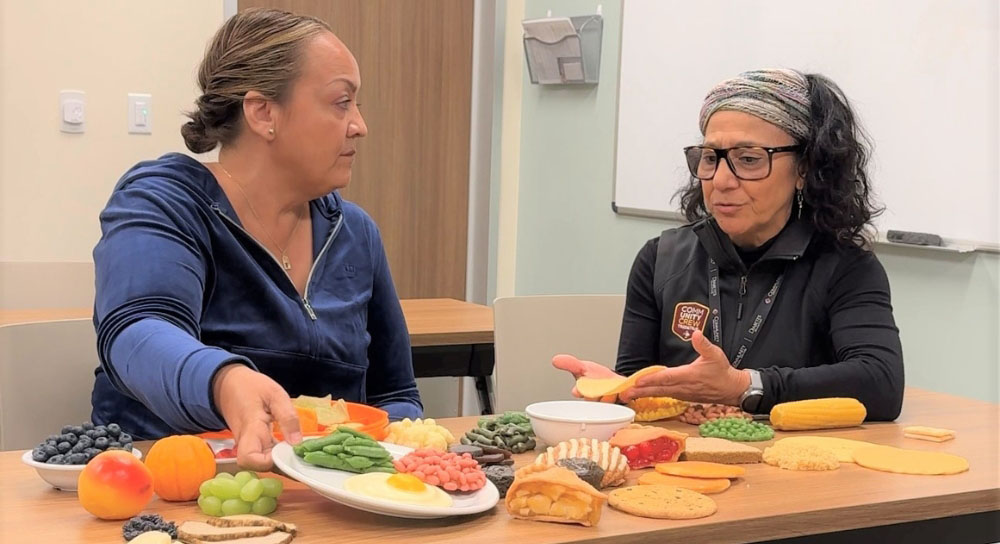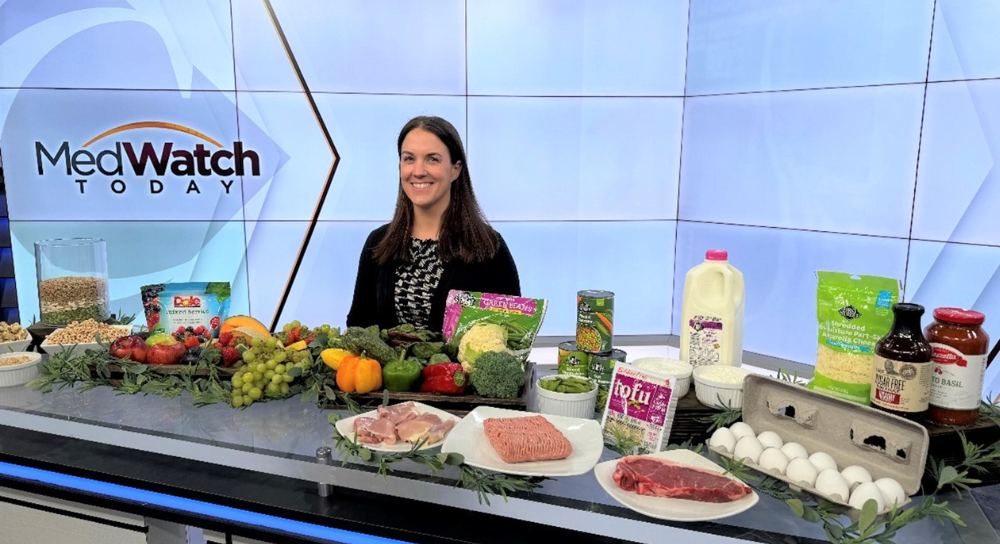Five days a week, families in Fresno’s struggling neighborhoods are on the lookout for a brightly colored bus decorated with elementary students’ drawings of broccoli stalks with bright eyes, smiling pizza slices and apples playing with food friends. Families know they can get healthy grab and go meals for their children here.

To tackle food insecurity among children living in some of the most impoverished neighborhoods, Fresno’s Economic Opportunities Commission (EOC) refurbished a school bus in May 2019 to provide meals during summers and winter breaks when children lack access to school’s free and reduced-price meals. Community Medical Centers joined area hospitals and community partners to support the effort providing $25,000 in community benefit contributions toward the bus retrofit project.
But since the coronavirus pandemic shut down schools, the EOC Food Express Bus has been a regular fixture in five neighborhoods where children are particularly vulnerable, providing both breakfasts and lunches. The colorful bus provides free and nutritious USDA-funded meals to children in West Fresno, Tower District, Manchester Mall and Cary Park—all underserved city neighborhoods.
“This is really what Fresno is about,” said Fresno County Superintendent of Schools Jim Yovino during the launch of the mobile cafeteria. “It’s about all of us coming together to say ‘No child should ever go hungry.’”
Before the pandemic, nearly 25% of Fresno County children lived in food insecure households, compared to 18% percent of children statewide. And Fresno ranks second in the nation for share of residents living in concentrated poverty areas. Children who lack access to good nutrition are more likely to suffer developmental issues, increased hospitalizations, behavior problems and decreased academic performance.
Economic security—among other issues affecting Fresno residents’ food insecurity—was a top identified health challenge in the most recent joint-hospital Community Health Needs Assessment. Community Medical Centers invests its “community benefit” funding in addressing health needs such as these. During fiscal year 2019, Community contributed $174 million, or 11% of its operating expenses, for medical education, outreach, to increase access to healthcare and care for the poor.
“Community is proud to support this project,” said Alma Martinez, community benefit project manager for Community Medical Centers. “As healthcare providers, we know that healthcare is just a small sliver of a person’s life. Real health happens outside of doctors’ offices and hospitals. Nutrition and access to healthy food is key to living a healthier life and preventing many diseases.”
During the coronavirus shut down of local schools in April, the Food Express Bus has served roughly 160,000 meals so far this year to children in southeast and southwest Fresno.


.jpg)


